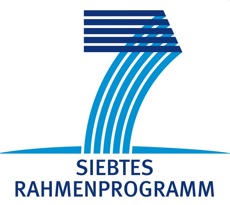A major research initiative of the European Commission about the sustainable use of biomass has started in march 2010. Researchers and industry are going to develop new ways to convert biological feedstock into energy and valuable material using biorefinery technology. The Commission will fund the programme with € 52 million for 4 years. 81 partners from universities, research institutes and industry in 20 countries will invest an additional € 28 million.
 The programme will contribute to the European Lead Market initiative on Bio-Based products. It aims to facilitate the translation of technological and non-technological innovation into commercial products and services. Biorefinery research will also contribute to the implementation of the European Energy & Climate Package. The goal is that by 2020 transport in every Member State will use a minimum of 10% renewable energy – especially biofuels. Biorefinery is also an important feature of the Bio-energy European Industrial Initiative, one of the six industrial initiatives of the European Strategic Energy Technology (SET) Plan. Its objective is that by 2020 at least 14 % of the EU energy mix will be bio-energy. More than 200 000 local jobs could be created as a result.
The programme will contribute to the European Lead Market initiative on Bio-Based products. It aims to facilitate the translation of technological and non-technological innovation into commercial products and services. Biorefinery research will also contribute to the implementation of the European Energy & Climate Package. The goal is that by 2020 transport in every Member State will use a minimum of 10% renewable energy – especially biofuels. Biorefinery is also an important feature of the Bio-energy European Industrial Initiative, one of the six industrial initiatives of the European Strategic Energy Technology (SET) Plan. Its objective is that by 2020 at least 14 % of the EU energy mix will be bio-energy. More than 200 000 local jobs could be created as a result.
Multidisciplinary research is needed to achieve the full potential of biomass, so the Commission is bringing together the most advanced developers in Europe of biorefineries. On the energy side they are developing new methods to convert biomass into so called second generation biofuels in which feedstock doesn’t compete with food production and which will produce heat and electricity. The other approach is to crack the components of biomass in order to produce chemicals and materials.
Three large collaborative projects will address the entire value chain from the production of biomass, logistics, intermediary processing steps and its conversion into end-products withthe feasibility of the techniques shown at pilot scale. One coordination action project will provide immediate support to and coordination of ongoing biorefinery research projects with potential high impact, as well as providing a framework for collaborations and information exchange, a common vision and a roadmap for 2020.
Projects overview:
Designing the Next Generation Bio-Refinery: The EuroBioRef Project
The EuroBioRef project (European Multilevel Integrated Biorefinery Design for Sustainable Biomass Processing) is supported by €23 million of funding from the European Commission’s 7th Framework Program and additional €14.4 million from partners. The project is going to run for 4 years and will deal with the entire process of transformation of biomass, from fields to final commercial products. It involves 28 partners from 14 different countries and will be coordinated by Centre National de la Recherche Scientifique, France. The 4 SME partners of the project represent 21% of the total contribution of the European Commission.
Internet:: http://www.eurobioref.org/
BIOCORE builds lignocellulosic biorefinery
The project BIOCORE will create and demonstrate a lignocellulosic biorefinery. It will process agricultural residues such as wheat and rice straws and different sorts of woods. The products will be second generation biofuels, bulk chemicals, polymers, speciality molecules, heat and power. BIOCORE involves 24 partners from 13 different countries and will be coordinated by the Institut National de la Recherche Agronom, France. The European Commission funds the project with € 14 million out of the 7th Framework Program, the partners will invest additional € 6,3 million. There are 7 SMEs participating in this project, representing 18 % of the total European Commission contribution.
Star-COLIBRI to coordinate biorefinery sector
Star-COLIBRI (Strategic Targets for 2020 – Collaboration Initiative on Biorefineries) promotes coordination to overcome fragmentation in the field of biorefineries research. Five industry-driven European Technology Platforms and five research partners will work on concepts concerning the whole value-chain of the biorefinery concept. The results will be validated by the International Civil Society Organisation IUCN. The consortium is led by the European Federation of Woodworking Industries and comprises 12 partners from 6 countries. The European Commission is supporting the project with nearly € 2 million the consortium is contributing € 400, 000.
Internet:: http://www.star-colibri.eu/
SUPRA-BIO for sustainable products from economic processing of biomas
Economic and sustainable production of fuels, chemicals and materials from biomass requires capture of the maximum energy and monetary value from sustainable feedstock. SUPRA-BIO achieves this by focussing on innovative research and development of critical unit operations. A technology toolbox for conversion and separation operations will be developed that adapts to various scenarios of product mix and feedstock. The aim is to optimise utilities to minimise environmental impact and maximise value from the product mix. The University of Oxford is going to coordinate the project which will get over € 12.5 million funding from the 7th Framework Programme of the European Commission. The 17 partners out of 8 countries are contributing an additional € 6.5 million. There are 9 SMEs participating in this project, representing 47% of the total EU contribution.
Internet:: www.suprabio.eu (online soon)
Contacts:
- EC press officer: Florian Frank, florian.frank@ec.europa.eu, Tel.: +32 2 29 97934
- EC Scientific Officer: Maria Georgiadou, maria.georgiadou@ec.europa.eu, Tel: +32 2 29 59846
Source
European Commission Reasearch, 2010-03-04.
Supplier
Share
Renewable Carbon News – Daily Newsletter
Subscribe to our daily email newsletter – the world's leading newsletter on renewable materials and chemicals









